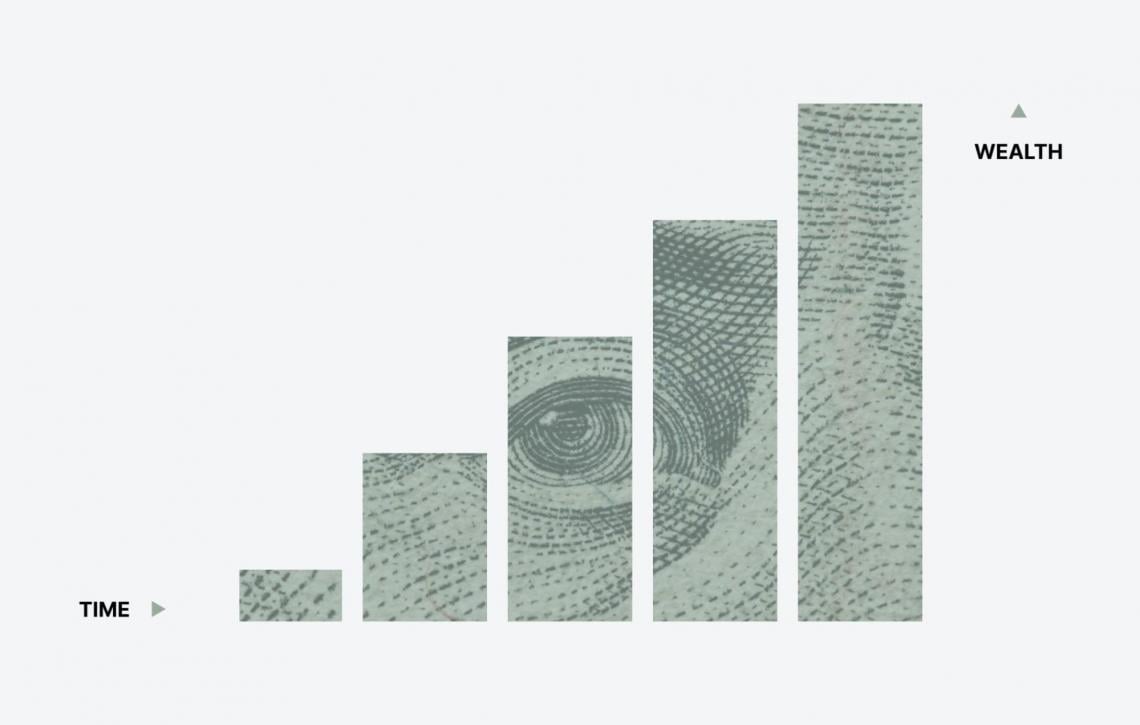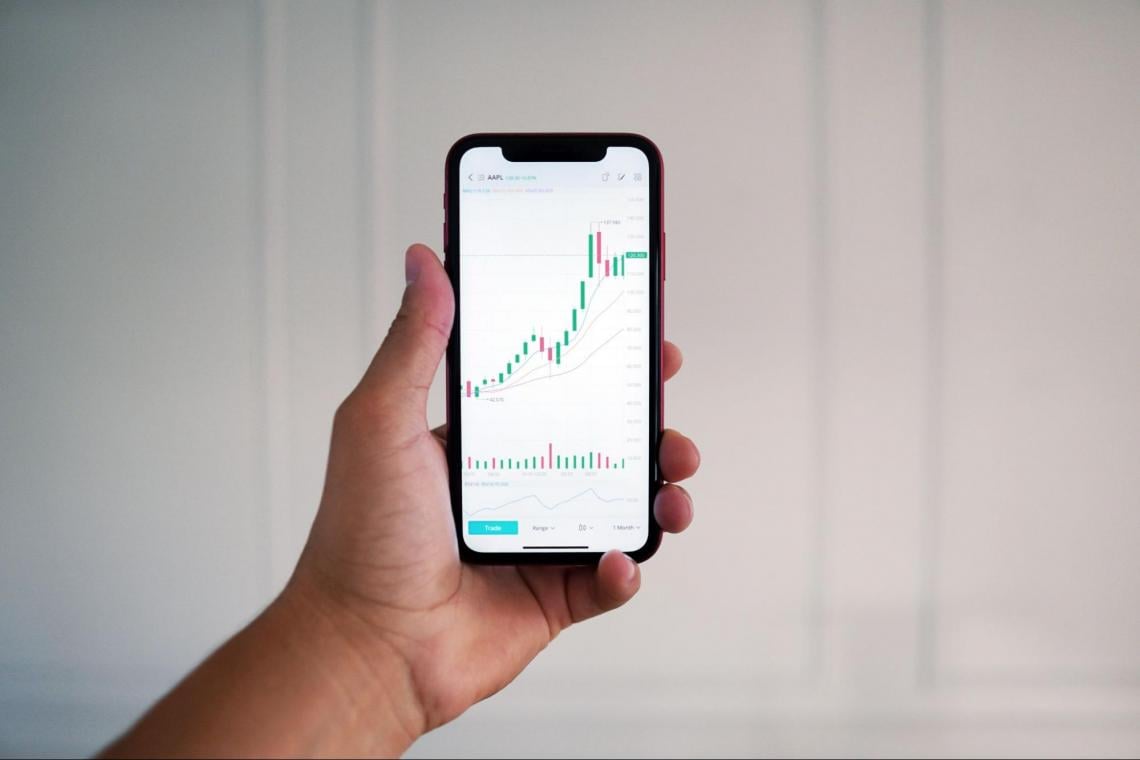Wealth Effect
Refers to a behavioral economic hypothesis where people spend more as the value of their assets increases.
According to the wealth effect, a behavioral economic hypothesis, people spend more as the value of their assets increases.

The ability to create income or transform an asset into cash gives it its value. They may be concrete objects like machinery or immaterial things like intellectual property. One of a company's most important financial documents, the balance sheet, lists assets.
Whether it's manufacturing equipment or a patent, an asset may be viewed as anything that, in the future, can create cash flow, lower expenditures, or increase sales.
Some examples of assets are as follows; a reliable cash flow is also frequently provided by real estate. Rent payments from residential, commercial, or industrial tenants and occasionally mortgage interest on the buildings are what provide the revenue.
When the value of their houses or investment portfolios rises, the theory goes, customers feel more financially secure and confident about their wealth. Even while their income and fixed costs remain the same, they are made to feel wealthier.
The idea behind the effect is that when widely-held assets like stocks and real estate increase, consumers tend to spend more. It, therefore, makes sense that increasing wealth also increases personal consumption.
Our income is mostly used to fund our consumption. Real wages will therefore play a significant role in determining consumer spending, but other variables have an impact, including:
- Interest rates:
Consumer and corporate decisions will be influenced by the direction of interest rates, whether they are rising or lowering. Decreased interest rates will result in lower financing costs for major purchases like houses, cars, and appliances.
Increased inflation reduces buying power, decreasing the likelihood that customers will have enough money to spend after paying for necessities like food and shelter. Higher consumer goods prices also discourage consumption.
- Inflation:
When consumers anticipate higher costs or inflation, they are more likely to buy now, which increases aggregate demand.
How Does the Wealth Effect Work?
According to the wealth effect, when household wealth increases due to increased asset values, such as housing or corporate stock prices, they increase their spending and boost the whole economy.

The effect also captures the psychological impact of growing asset prices, such as those that occur during a bull market, on consumer spending habits.
Other assets include:
1. Dividend Paying stocks:
Any investment that pays a dividend qualifies as a dividend stock. In terms of the amount of money you will get over the year, dividends are stated as rates. The dividend rate is expressed as a percentage of the stock price in dividend yields.
In other words, Dividend Aristocrats are S&P 500 firms with a track record of reliably paying shareholders dividends and yearly raising the dividend payout.
Based on mutual funds, REITs pool the capital of several investors. Individual investors can profit from income from real estate investments without having to own, maintain, or finance any real estate themselves.
2. Rental properties:
Investors who purchase a rental property intending to hold it can benefit from recurrent rental income and possible appreciation when the property is sold or refinanced.
3. Real estate investment trusts:
A business that owns, manages or funds income-producing real estate is known as a real estate investment trust (REIT).
4. Bonds:
Online traders can buy and sell income-producing assets like bonds and bond index funds. Bonds like Treasury bills don't provide high-interest rates, but because the U.S. government backs Treasury bills, there is almost no chance of losing the invested money.
5. Real estate crowdfunding:
Investing in big residential and commercial projects, such as built-to-rent (BTR) new house developments, shopping malls, and apartment complexes, can be done through real estate crowdfunding organizations.

Moving forward, the idea of the wealth effect focuses on how significant rises in the value of investment portfolios boost consumers' emotions of security, sometimes known as their confidence level—increased confidence results in more spending and lower saving rates.
Businesses may use this principle as well. Similar to what is seen on the consumer side, businesses typically raise their employment rates and capital expenditures (CapEx) in reaction to growing asset prices.
In other words, this implies that economic growth would need to increase during bull markets and decrease during bad markets.
However, wealth effect proponents may recall several cases in which considerable tax and interest rate rises during bull markets failed to reduce consumer spending. The events of 1968 serve as a good example.
Despite a 10% increase in taxes, consumers kept increasing their spending. The rising tax burden reduced discretionary income, yet wealth grew despite this as the stock market steadily increased.
Things to Consider
There are psychological explanations for the wealth effect. When the value of their portfolios increases, consumers see themselves as wealthier.

Our emotions, beliefs, and goals also have an influence on our spending behaviors, which directly affect our financial situation. The "psychology of spending" holds that spending money rather than conserving it gives one a sense of immediate satisfaction and control.
In other words, consumers feel more at ease spending their money as the value of their assets rises. They mentally equate a rise in net worth with an increase in total income, encouraging them to spend more money—possibly on luxuries that aren't required.
The following outcomes are probable as an individual's or household's wealth increases:
- Greater wealth may lead to higher interest, rental, or dividend revenues.
- It gets simpler to refinance a property and to take equity out of it through mortgage equity withdrawal.
- The ratio of savings to disposable income, or the savings ratio, declines. This is because people feel more at ease taking financial risks, spending their income, and borrowing money as their impression of their wealth increases.
- Banks may be more willing to provide mortgages when housing values rise.
- Wealth taxes will increase tax income for governments.
The idea that the wealth impact increases personal spending seems logical at first.

Therefore, it makes sense to expect that someone who has made significant gains from their home or stock portfolio would be more likely to splurge on an expensive vacation, a new automobile, or other discretionary purchases. This is how emotions and feelings impact spending behavior.
Critics contend that other factors, including taxes, household bills, and job patterns, should have a considerably greater influence on consumer spending than the growth in asset wealth.
Why? Because an increase in an investor's portfolio worth does not necessarily translate into spending more money.
Housing Wealth Effect
About half of household net worth is made up of housing assets, while roughly two-thirds of the US GDP is made up of consumer spending. According to empirical data, changes in home wealth are linked to parallel changes in spending.
Consumer spending grows as housing wealth rises.
In fact, as home equity borrowing and capital gains from house sales increase in line with growing property values, they spend even more freely. In actuality, housing may significantly and indirectly contribute to economic growth through consumer spending.

The assets minus the liabilities of the household sector are used to calculate household wealth. Financial assets, such as bank deposits, direct equities holdings, and superannuation balances, are included in household assets, along with non-financial assets, such as houses and cars.
Residential mortgages make up most of the household sector's liabilities, including credit card debt and personal loans.
In recent decades, household wealth has increased far more quickly than household income. In major part, this is due to rises in the value of household assets, which have increased from six times the average household's disposable income in the early 1990s to eleven times now.
The amount of money that a person or family has available for spending or saving after income taxes have been deducted is referred to as disposable income (sometimes known as disposable personal income, or DPI).

Households have more money to either save or spend as their disposable income rises, which inevitably results in an increase in consumption.
Similarly, although growing less quickly than family assets, household liabilities have outpaced household income.
The amount of family wealth has occasionally decreased, including during the Global Financial Crisis, and the pace of expansion of household wealth fluctuates substantially from year to year.
Due to declining home prices, family wealth growth has halted after rising by around 60% between 2013 and 2017.
Stock Market Wealth Effect
An increase in a county's stock market wealth is linked to increased consumer spending and local job and payroll growth.
People who have money invested in the equity markets benefit as equities rise. Consumer spending increases due to rising wealth because people tend to spend more when they feel secure about their ability to do so financially.

Gains on the stock market must first be regarded as unrealized. Unrealized gains are profits recorded on financial statements but have not yet been converted into cash. The same is true of skyrocketing real estate costs.
Spending spikes on credit cards are the main way consumer spending responds to changes in the stock market.
The current economic growth in the U.S. and the sharp rise in stock prices have rekindled policy and academic interest in the relationship between family wealth and consumption levels.
People who have money invested in the equity markets prosper when stocks rise. Consumer spending increases due to rising wealth because people tend to spend more when they feel secure about their ability to do so financially.
For example, when the stock market is performing well, consumption in lower-income households increases by 10%, while it only increases by 5% in higher-income households. People may be boasting about their 401(k) balances because of the booming stock market.

There are well-known reasons to worry that steady or dropping share prices may worsen a slowdown in the economy by lowering household consumption expenditures; in the same way, the inflation of stock prices exacerbated consumption pressures during the ten-year boom.
There is every reason to believe that changes in housing wealth have an analogous impact on household behavior.
Additionally, institutional advancements (like second mortgages in the form of secured lines of credit) have made it as easy to access the equity in a home as it is to sell stocks or take out a margin loan.
Coping With the Effects of the Wealth Effect
U.S. household wealth increased by $1.92 trillion to a record $77.3 trillion in the third quarter of 2013, helped by booming stock markets and a housing recovery. Compared to the pre-recession peak of $69 trillion, household net worth was more than $8 trillion higher.

You are not alone if, despite that outstanding growth, you do not feel very wealthy. Here are some tips for dealing with the wealth effect on your financial situation.
1. Focus on Creating and Preserving wealth:
The creation of wealth during periods of the positive wealth effect and the preservation of wealth during periods of negative wealth effect should be your main priorities.
Rather than taking excessive risks, such wealth development and preservation efforts should be made in a balanced manner.
2. Avoid Aggressive Tactics When Markets Are Hot:
Taking equity out of your house for a trip or stock purchases is typically not a smart idea.
As we discovered in 2008–2009, paper wealth has a disconcerting propensity to vanish into thin air. In other words, prices fluctuate both up and down.
3. Don't Be Swayed by Get Rich Quick Tales
When the market fell in 2001–2002, speculators who tried to day trade equities extensively in the late 1990s risked financial ruin.
When the U.S. real estate market saw its most severe correction since the Great Depression in 2008–2009, investors who bought many homes shared a similar destiny.
Pay little attention to the boasting of people who claim to have achieved financial success by (extreme) speculating, and avoid taking on more debt than you can realistically afford.
4. Stay with the Trend:
Staying current with trends is the simplest method to build money. Contrarianism can occasionally pay off, but you may have to take significant losses if your timing is incorrect.

For example, short sellers who were dubious about the unrelenting rise in most U.S. equities in 2013 were forced to exit their short bets after suffering significant losses.
5. Pay Attention to Wealth Preservation:
Wealth preservation makes up half of the equation, and wealth creation makes up the other half.
Use trailing stops and option methods to safeguard your gains if you are afraid that there may be an impending, significant market correction.
6. Stay Attuned to Valuations and Signals:
Valuations and other indicators might give investors a heads-up when the mood among investors is about to change.
While it may be challenging or impossible to predict market tops and bottoms, smart wealth-building techniques include taking some money off the table when they reach record highs and acquiring quality firms at multi-year lows.
Researched and authored by Dua Bakhsh | LinkedIn
Free Resources
To continue learning and advancing your career, check out these additional helpful WSO resources:




or Want to Sign up with your social account?